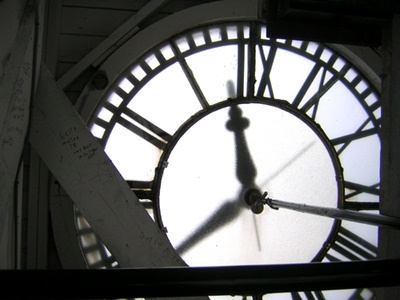All Nonfiction
- Bullying
- Books
- Academic
- Author Interviews
- Celebrity interviews
- College Articles
- College Essays
- Educator of the Year
- Heroes
- Interviews
- Memoir
- Personal Experience
- Sports
- Travel & Culture
All Opinions
- Bullying
- Current Events / Politics
- Discrimination
- Drugs / Alcohol / Smoking
- Entertainment / Celebrities
- Environment
- Love / Relationships
- Movies / Music / TV
- Pop Culture / Trends
- School / College
- Social Issues / Civics
- Spirituality / Religion
- Sports / Hobbies
All Hot Topics
- Bullying
- Community Service
- Environment
- Health
- Letters to the Editor
- Pride & Prejudice
- What Matters
- Back
Summer Guide
- Program Links
- Program Reviews
- Back
College Guide
- College Links
- College Reviews
- College Essays
- College Articles
- Back
Does the Electoral College Make Sense?
Just because the Electoral College was a good decision in 1787, it does not mean it still is today. At a national convention in 1787, delegates adopted the Electoral College voting system in which the presidents and vice presidents are chosen indirectly. They chose this over the direct popular vote because they felt that people wouldn’t have enough information to make a smart choice. Even though, all of this may be true, the electoral college doesn’t have a voice, it can not speak for the people. The electoral college should be abolished because it hurts third party candidates, small states are overrepresented and it's undemocratic.
The electoral college is an unfair voting system that affects third party candidates. Document B shows that in the 1980 presidential elections, Independent candidate, John B. Anderson won 5,719,437 popular votes which is 6.6%, while the electoral vote is at 0%. This is the same case in the 1992 elections with Ross Perot when he won 19,743,821 popular votes which is 18.9%, the electoral vote was still at 0% (Various Sources 449). This isn't fair because the republican and democratic candidates get most of the popular and electoral votes while the independent candidates get nothing. In the article, "Electoral College Debate: Election 2000: It's a Mess, But We've Been Through It Before," Arthur Schlesinger Jr. says, "The multiplication of splinter parties would make it hard for major-party candidates to win popular-vote majorities"(Schlesinger 455). He refers to splinter parties as the independent candidates, the major party candidates as republicans and democrats. He is blaming the third parties for making elections difficult for republicans and democrats. In another article called, "Cheers for the Electoral College," George Will states, "The system bolsters the two-party system by discouraging independent candidacies that splinter the electorate"(Will 455). Basically, he is saying that the independent candidates have ideas outside the mainstream and the Electoral College doesn't want that brought to the table, so this is why they get no electoral votes.
The electoral college gives some states more say in the elections than other states. Smaller states have more representation than other states in the Electoral College systems when it comes to getting electoral votes. In Document A, a small state like New York gets 29 electoral votes while, a bigger state such as Oregon gets 7 electoral votes (Various Sources 447). George C. Edwards article, "Why the Electoral College Is Bad for America," shows that the District of Columbia has a population of 601,733 with 3 electoral votes while Hawaii has a population of 1,360,301 with 4 electoral votes (Edwards 453). I don't think this makes sense. These documents prove my point of view that the Electoral College has an unequal voting distribution. In the article, "The Indefensible Electoral College," Bradford Plumer wrote, "Because each state casts only one vote, the single representative from Wyoming, representing 500,000 voters, would have as much say as the 55 representatives from California, who represents 35 million voters" (Plumer 457). What he is trying to say is that some states like California have more say in the elections than other states such as Wyoming just because they have a bigger population.
When there is a tie in the presidential elections, the Electoral College is undemocratic, meaning it doesn't favor the people. In the article, "The Indefensible Electoral College," Plumer says that, "Perhaps most worrying is the prospect of a tie in the electoral vote. In that case, the election would be a thrown to the House of Representatives, where state delegations vote on president. (The Senate would choose the Vice President.)" (Plumer 457). The House of Representatives cannot speak for the people.
In conclusion, the Electoral College didn't accomplish anything except hurting third party candidates, over representing small states, and being undemocratic, these are the consequences we face today. This is why the Electoral College should be abolished. The bottom line is that the delegates made a huge mistake back in 1787 about choosing this as their new voting system. Now you decide if the Electoral College makes sense.

Similar Articles
JOIN THE DISCUSSION
This article has 1 comment.
